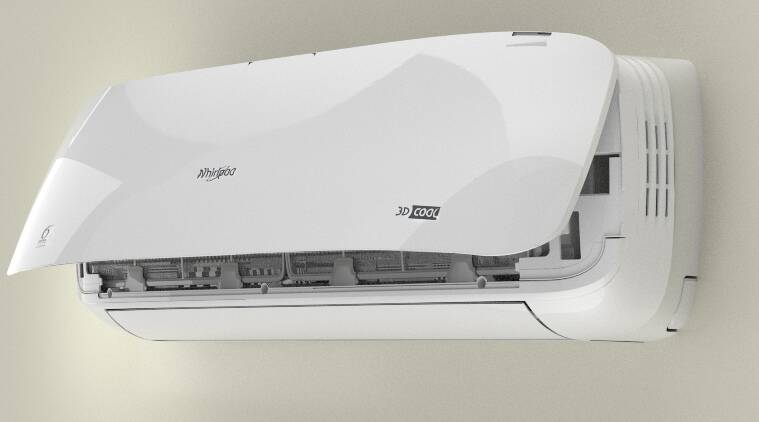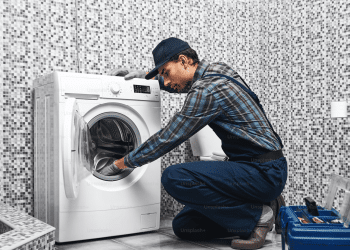Table of Contents

Your home AC system can be a major part of your day-to-day life. In many parts of the US and beyond, air conditioning is not just for comfort – it is an active part of staying safe and keeping your home in a liveable state, especially during heat waves or warmer parts of the year.
Faults, failures, and unexpected damages can easily shut off even the sturdiest AC unit, and once one breaks, it can be hard to know how you are supposed to repair it. While you can call specialists, they might not always arrive on time and might need parts that they do not have readily available.
Repairing your AC system is not a one-step process. There can be a lot of factors that go into the repair work, as well as countless things to consider beyond the physical repairs themselves. Here is a quick guide on how to handle home AC repair when you are caught off guard.
Act Quickly
A lot of issues that might arise with your home AC system will only get worse as time passes, so you want to try and react as soon as you notice an issue. While you might not always be aware of the problem until it is too late, it is still important to get everything fixed urgently.
Turn Off the Power
Always turn off the power before doing anything else, no matter how small your tests or tweaks might be. If your home AC system is breaking down, then you do not want it to keep running and damaging itself further, especially not if some of the damage might be with the electrical system.
Of course, there can be times when you do need the power on, such as testing the temperature controls or making sure that your AC will actually turn on. Do not shut the unit off immediately if you are planning on trying to identify the issue, but always make sure that you do eventually switch it off.
In some cases, your AC system will break down even if it is switched off. Leaks are a good example of this since they can drain refrigerant from the system whether it is active or not. However, keeping the power switched off makes it easier to inspect the system safely.
Open Up the Area
Always try to open up the area containing your AC unit and any relevant systems that might be damaged. If furniture is in the way, move it so that you (or any specialists you hire) can easily access the unit.
Not only does this give them more room to move around and inspect the unit from different angles, but it can also minimize the chances of damage to your home. For example, a mild refrigerant leak can often stain or damage things underneath the unit and might even spread to nearby furnishings or decorations.
The more room you can open up, the easier it becomes to fix the system quickly. It also means that nobody is going to go close to the unit, which can help them avoid accidental shocks or other small hazards that might come from the malfunctioning or faulty AC system.
Do Some Research
Always put in the effort to look up potential problems when possible. If you are not already familiar with some of the common faults that you can run into, then you want to know what you are dealing with – we even have a few further down this article that you might not be aware of.
The more you know about AC system faults, even at a basic level, the more you can do to work around them. Even if you just know the absolute minimum about potential risks and hazards, you can avoid hurting yourself or causing unnecessary damage to the faulty unit.
Call a Specialist
Some people will call for specialist help the moment they know their AC is broken, while others will want to inspect everything first. Either way, though, having an expert lined up makes it very easy to call and hire some help on short notice, which can be important during heatwaves.
A broken AC unit can make hot weather genuinely dangerous in some parts of the US: at the very least, it can lead to a lot of discomfort. If you can’t fix the AC yourself, then having somebody else fix it for you is a must, especially when you are already struggling against the warm weather.
It is important to call a specialist as early as possible since you need to prepare for delays. If it takes them three days to get the parts needed to fix the AC unit, then calling them immediately is better than calling them after a week and waiting a total of ten days to get it repaired.
Identifying the Problem
When your AC unit isn’t blowing cool air, it may be time for an AC repair job. No matter the reason or the amount of damage the unit has suffered, you can usually tell when something is wrong because the system will stop working properly.
If you notice issues with your AC unit, such as lower temperatures or worrying noises, then you should always make an effort to figure out what the problem is first before anything else. The more you know, the more you can tell the experts, giving them a chance to bring the right tools and parts to fix it.
Check Temperature Settings
Play around with temperature settings to double-check that the AC system is working properly. If you notice disconnects between the temperature settings and the actual output of the AC unit, then something might have broken, or there may be faults in the wiring.
It is also a good idea to look at any temperature readouts since they might tell you if any sensors are broken. Some units use their own sensor system to judge the current temperature, but they might be so damaged that they can’t take proper readings anymore and begin to feed back incorrect information.
Look for Other Causes
Always double-check to be sure that nothing else could be altering the temperatures you are getting. A damaged thermostat might be sending signals incorrectly to your AC, which is working perfectly, so you do not want to take apart the AC unit for nothing.
If you can’t see a clear reason why the unit is broken or malfunctioning, then you should ideally avoid touching it until you can get a specialist in. Without a way to identify the damage, you can’t judge how dangerous it would be to fiddle with the unit or what the potential fixes might be.
Be Careful
Never try to take your AC unit to pieces and repair it yourself unless you are experienced with doing so (and have the tools to do it). AC units might seem simple in theory, but they can be incredibly dangerous if you start to mess around with the wires and electrical components at random.
AC units can often seem very safe, but they can be just as dangerous as any other appliance if used incorrectly. Turning them off straight away helps you avoid getting shocked or hurt while you experiment with them, but in most cases, you should leave the entire project to an expert.
If you have the right skills and tools to open up your AC unit and inspect it yourself, then that is your choice to make, but you want to be careful with how you approach it and what you actually do. If you have any doubts at all, then avoid touching anything and call in a specialist.
Get Expert Help
If you are not sure what the issue could be, then there is nothing wrong with leaving the broken AC system alone and just skipping straight to calling a specialist. This is often the safest and least disruptive idea, especially for people who do not know what they should even be looking for.
Experts are always going to have a better understanding of the problem than the average homeowner, making them a vital part of fixing the problem. Even if you understand the issue, you might not know where to get the replacement parts or how to fix the AC unit yourself.
Naturally, you also do not have to worry about hurting yourself by trying to fix it on your own. Relying on experienced outside help will cost you, but it also lets you avoid all of the problems that come with trying to fix a complex electrical system all by yourself.
Common AC Unit Problems
There are a lot of reasons that your AC unit could break or suffer faults, but some are much more common than others. Understanding the issues that your system might be facing can be important if you are still working out what to do, especially if the fault happened very suddenly.
Poor Maintenance
If you have not been maintaining your AC system properly – or getting somebody else to do it for you – then certain issues can happen naturally over time. For example, dirt in the filters may lead to the air not being moved properly, and the fans or compressors can fail earlier than they normally would.
This also tends to compound other issues, making them happen much faster since the system is already running at subpar levels. If you keep your home AC system clean, then you can expect much better results overall and a much easier time repairing other faults.
If you bought an AC unit second-hand, or it was already installed in the house that you now own, then it is a good idea to get it checked and have basic maintenance done as soon as you can. There is no guarantee that the previous owner remembered to, which could mean that the unit is already operating at a disadvantage.
Leaks
Refrigerant can sometimes leak out of an AC system. While an AC unit will often run out of refrigerant naturally over time, a leak can quickly drain one, spreading refrigerant all over that room and making it impossible to use the AC unit correctly until it is fixed.
Most AC models have a specific refrigerant level that they work best at, so leaks can rapidly damage their overall efficiency and make them gradually break down until they stop working entirely. These leaks need to be fixed by someone who has been trained in the right kind of repair work – only then can the AC Unit be recharged with more refrigerant.
These leaks are not always obvious and can actually be quite small, but the damage will eventually stack up. If you do not do anything to correct the problem, the refrigerant might actually begin to stain surfaces or put pets in danger of consuming some.
Electrical Faults
It is quite common for electrical systems to wear down in AC units, something that can take quite a bit of time and effort to repair. For example, electric control features such as fan controls can wear down, making them less responsive and potentially damaging the entire unit.
These electrical issues are not easily fixed by the average homeowner, so you will want a specialist to handle the work instead. This lets you avoid potentially electrocuting yourself or re-wiring the unit incorrectly and causing even greater levels of damage.
If your AC unit is showing signs of electrical damage, turn it off as soon as possible. The longer you leave it running, the worse the damage can become, and the more danger you will be in. If an electrical system is broken, then you do not want to keep a live current running through it.
What Now?
If you are struggling with a damaged AC unit, or are simply worried about yours potentially breaking down in the near future, then you will want to get yourself prepared. There is not a single ideal way to tackle an issue like this, but as long as you know how to get started, you can easily figure the rest out.
Be sure to take things slowly and do not rush, even if you need to call in a specialist immediately. It is better to understand the problem and tackle it correctly, rather than trying to run straight for a solution that might not even fit the problems your AC system is having.







